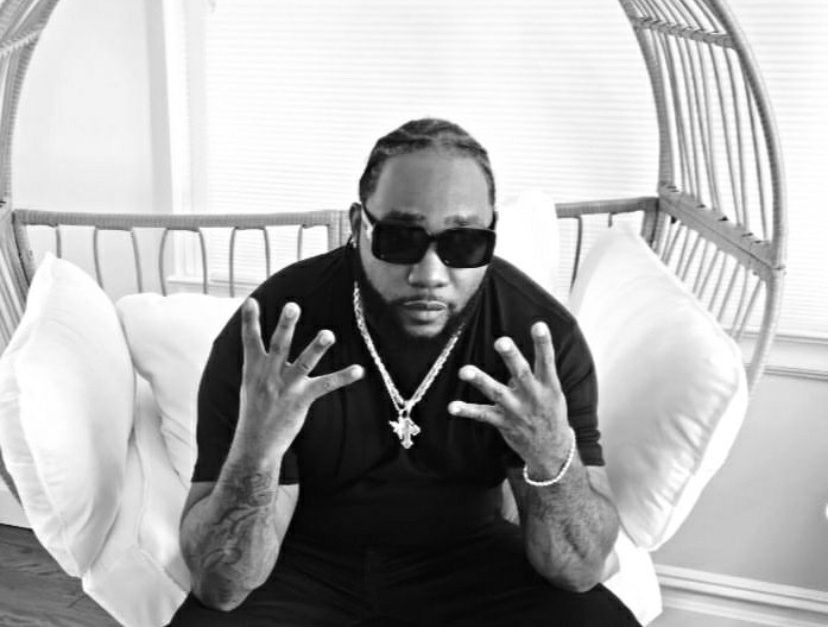
In the cracked concrete veins of Highland Park, Michigan, where the streetlights flicker like dying stars and the air hums with the distant wail of sirens, a boy named Zeek found his voice amid the chaos. Born into a world that chewed up dreams and spat out survivors, Zeek’s early years were a brutal education in resilience. Highland Park wasn’t kind to the young—poverty clung to the buildings like graffiti, and the neighborhood’s rhythm was set by the beat of struggle rather than opportunity. But music? Music was the escape hatch, the hidden doorway to something bigger.
It started small, as these things often do. At just 12 years old, Zeek huddled in makeshift studios with his crew, a ragtag group they dubbed Click N Spark. They were kids with fire in their bellies, rhyming over borrowed beats in basements that smelled of damp concrete and ambition. Zeek’s lyrics poured out like confessions—raw tales of the streets he’d navigated, the losses he’d witnessed, the hunger that gnawed at more than just his stomach. Influences seeped in from the greats: Michael Jackson’s electrifying energy, Tupac’s unflinching truth-telling, Snoop Dogg’s laid-back menace, and Prince’s boundary-shattering flair. These weren’t just idols; they were blueprints for survival, teaching Zeek that vulnerability could be a weapon, and rhythm could rewrite fate.
But life in the Park didn’t pause for dreams. As Zeek grew, so did the shadows. The group fizzled under the weight of real-world pressures—jobs that paid pennies, temptations that pulled friends into darker paths, and the relentless grind that turned spark into smoke. Zeek pressed on, but doubt crept in like fog off the Detroit River. Was this it? Endless demos echoing in empty rooms, crowds that never showed? The streets whispered alternatives—quick money, easy escapes—but Zeek clung to the mic like a lifeline. His lyrics evolved, drawing from personal scars: the absent figures in his life, the betrayals that hardened his resolve, the quiet nights questioning if authenticity was worth the isolation.
Then came the turning point that shattered and rebuilt him—the birth of his daughter. Holding her for the first time, Zeek felt the weight of legacy crash down. This tiny life, innocent and full of potential, mirrored his own buried hopes. No more half-measures. The group days were over; it was time for solo flight. He poured his soul into building Royalty Gang Records, a label born from the ashes of his past, symbolizing the crown he refused to let the world strip away. “Royalty Gang is the new movement,” he’d say, inviting others to join not just as fans, but as family. His music shifted gears—still gritty, still rooted in the Park’s dark alleys, but now laced with a fierce optimism. Tracks like “Losses” became anthems of rebound, chronicling the falls that forged unbreakable strength.
The road to recognition was paved with potholes. Zeek hustled relentlessly, performing in dimly lit venues where the crowd’s energy could make or break a night. He faced the industry’s cold shoulder—labels that saw potential but demanded he dilute his edge, critics who dismissed him as just another street rapper. But Zeek’s authenticity was his armor. “Be consistent,” he’d advise up-and-comers. “Outwork everybody. You’re only as good as your last song—don’t get complacent when it comes to creativity.” These weren’t platitudes; they were scars turned into scripture. He built a legacy not for fame’s fleeting glow, but for his children—to show them that dark days could birth bright nights.
By 2025, the culmination arrived: Dark Days Bright Nights, his first official album. Released in early October, it was a sonic memoir, blending haunting intros like “DD BN Intro”—a nod to Tupac’s introspective fire—with tracks that dove into the duality of his life. Themes of triumph over trauma pulsed through every bar: the “dark days” of loss, betrayal, and street survival contrasting the “bright nights” of fatherhood, self-made success, and unyielding passion. Though full tracklists remained elusive in the underground buzz, snippets leaked on platforms like YouTube hinted at bangers exploring resilience, family bonds, and the grind’s glory. Features from local talents amplified the Royalty Gang ethos, turning the project into a collective roar from Highland Park’s underdogs.
Critics and fans alike hailed it as Zeek’s manifesto. Appearances in outlets like MTV News and Grammy Global nods whispered of bigger stages ahead. His Instagram, @youngzeek23, buzzed with posts proclaiming him the “King of Highland Park music,” a title earned through blood, beats, and unbreakable will. Affiliations with heavyweights like Roc Nation loomed as rumors, but Zeek stayed grounded—streaming on Spotify, Apple Music, and YouTube, building an empire one play at a time.
Today, Young Zeek stands as a beacon in the shadows he once feared. From a kid rhyming in basements to a father crafting legacies, his story isn’t just compelling—it’s a blueprint for anyone clawing their way out. In a world that bets against the underdog, Zeek bets on himself. And in the end, that’s the brightest light of all.